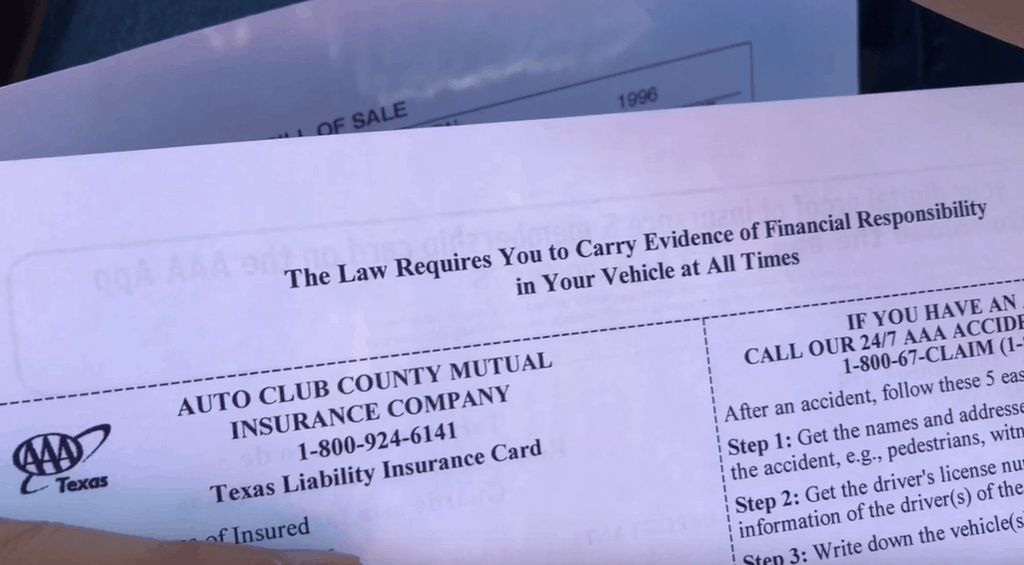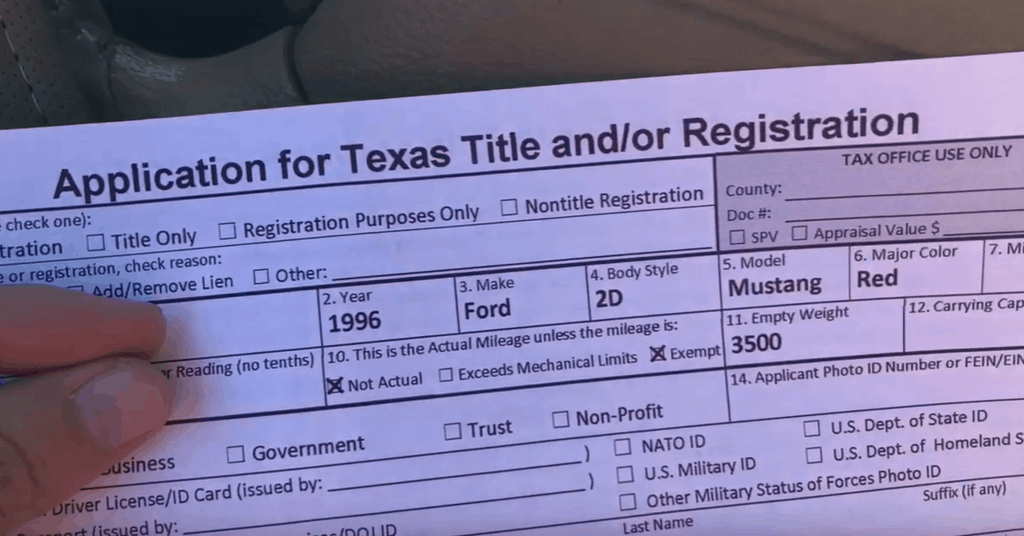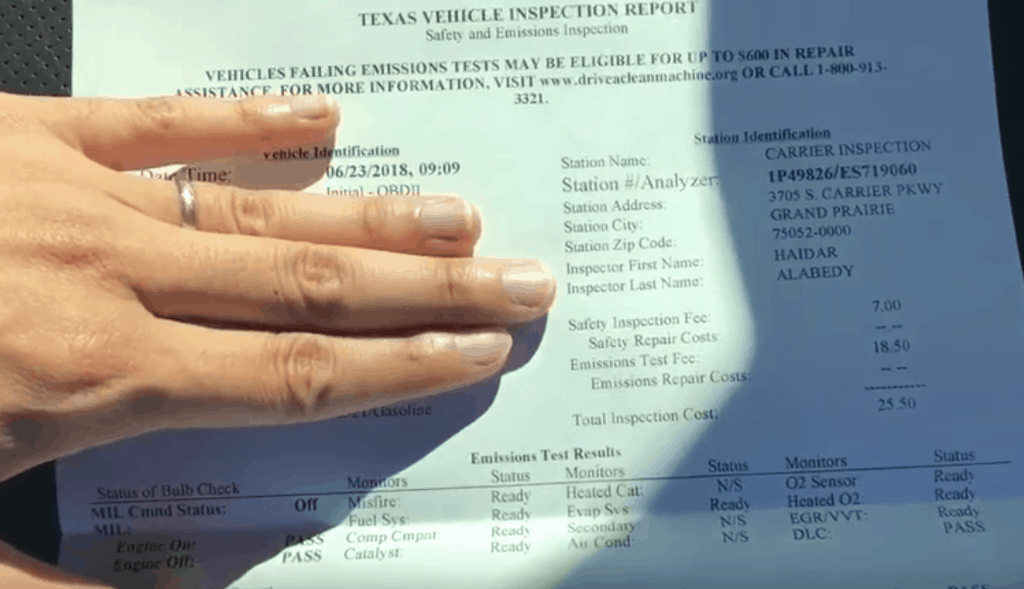How To Register A New Car In Texas
Do you recently relocate to Texas with your car or you purchased a new one? Registering your car is of paramount ones you move to a new state in the USA.
Luckily when buying a new car, the process of registration is done by the dealer. But if your case is quite different, you might find the registration process quite difficult. To make things easier for you, we will show you how to register a car in Texas.
As a newbie, it is obligatory to carry out state inspection when trying to transfer ownership or renewal of your vehicle papers. The documents then get submitted to the local tax office. Officials are willing and open to answering any queries you may have.
The Process on How to Register a Car in Texas
Step 1: Apply for a Texas State Driver's License
It costs $25 to apply for a license at your local license office. You do not need to take a written or road test, so long as you possess a US driver's license. A temporal receipt gets issued at the office, which you can use for registration pending when you receive the official license.
Documents needed for application include proof of residence, current driver's license, Social Security Number (SSN), and proof of identity.
Accepted identity documents including but not restricted to Passport and military ID. A mortgage statement, medical card, etc. can be used for proof of residence.
The old license gets collected from you before the issuance of the new one.
You can search for the closest licensing office here . You would receive the new permit in three weeks.
You are qualified for a driver's license in Texas if you already have a license permit from South Korea, Germany, Taiwan, and France. License from other countries would require you to undergo a driving and road knowledge test.
Step 2: Get Your Auto Insurance Up To Date

You should get the new auto insurance upon entry into Texas. Furthermore, it is mandatory to have $60000 coverage per accidental injury, $30000 for each injured person, and $25000 property damage.
Ensure to reach out to your former car insurance company to verify if they offer policies in Texas. You can also make use of different web tools or insurance brokers to source for the best bargains.
Keep your former insurance policy active until a new one is purchased. New insurance cards generally arrive by mail within two weeks. Given that this card is important for registration, you should keep it safely and nearby.
Step 3: Inspect Your Car in Designated Inspection Sites
Every vehicle is mandated to go through safety inspections. Some countries also carry out emissions inspections. Hence, head to any inspection site and request for state inspection.
You can find vehicle inspection sites close to you here .
After the inspection, you get issued a report. Safety inspections cost $7 with an additional mechanic service charge, while emission inspections cost about $31.50. During this process, you have to provide your insurance card.
Step 4: Complete the Texas Title Certificate Application Form

The certificate of title can also be called Form 130-U. Download the form here: http://www.txdmv.gov/forms. Use a PDF reader to fill the form on your computer or simply print and fill. You can also decide to get the application paper from your local tax office.
Do not fill the section that says, "Texas License No."
You should also know that odometer reading, necessary personal information, vehicle model and brand, and car identification number are also required.
Step 5: Register the Vehicle at the Local Tax Office
Use this location toolto find a nearby tax county office. Bring along your car inspection report, proof of ownership, and Insurance card. You can go with the Registration or title from your previous state as this also accepted as proof of ownership. Go along with your Texas title certificate.
Step 6: Make Payment
For cars and smaller pickup trucks, the fee is $50.75. For mopeds and motorcycle, the charge is $30. For pickup trucks above 6,001 pounds (2722kg), the fee increases to $54. Inspection fees, processing fees, and local fees may be required, but these vary between countries.
In addition to inspection fees paid in the inspection site, other fees to be funded include processing fees, which costs $4.75, an inspection fee, which is $7.50. At the same time, local fee prices are $31.50. The processing fee covers registration stickers and also car plates. Donating to charities is optional.
Step 7: Apply the Registration Stickers to the New Car Plates
You would receive the new car plate plus sticker through the mail. Detach the previous license plate and replace it with the new one. On the upper right corner, place the registration sticker.
You can track your plate and sticker here.
How to Renew Your Registration
When it comes to cars, owners will need to renew the registration after a specified period of use. Read on to learn how to renew it without hassles.
Step 1: Before Expiration Renew Your Vehicle Registration
Your vehicle registration should get renewed once in a year, and the sticker would show the month and year of expiration. The validity is till the last date of the specified month of the year in view. It would be best if you renewed before then.
You can sign up for electronic reminders to get an mail on when to re-register.
Step 2: Inspect Your Car Again

A safety inspection is mandatory in all countries, while some states also require emission inspection. Your local inspection sites would carry this out annually. But to do this, an Insurance card may be requested, which means you should have it handy.
For the safety inspection, this costs $7 while the emission inspection fee goes for $31.50. The car mechanic would also bill you for service rendered. Your vehicle insurance card needs to be available to carry out the inspection.
Find local inspection sites close to you here.
3. Complete the Online Registration
Go to the site, log in, and enter your car plate number and the final four digits of the card identification number. Use a credit card to make payments. After that, the new stickers would get delivered in three weeks.
The state would carry out checks of past electronic records from inspection sites, to verify the inspection of your car. They might also contact you to provide further information if the state is unable to verify your insurance. If you receive a ticket caused by an expired registration, you would not be able to register online.
4. Alternatively, Apply At Your Local Tax Office

Go with your car inspection report, insurance card, and notice for renewal to the local Tax office. If you did not get a renewal alert, No worries come along with your licensed car plate number, and car identity number. You should also go with your previous year's registration receipt.
Make use of a credit or debit card to process payments. You can find your local tax office here.
5. Renew By Way Of Mail
Renewal letters include a form that you would use your car inspection information to complete. You should duplicate your insurance card.
Afterward, send back the now completed form, along with an insurance card copy, and a check duly signed. Keep a copy of all documents for safekeeping.
6. Reach Out To the Department Of Motor Services (DMV) if you are Out Of State
If your car can not get inspected because of your absence, the DMV can allow you to renew without doing an inspection. However, it is mandatory to have the vehicle inspected in three days of your return.
Wrap Up
Registering your car in Texas or renewing your registrationis easy if you follow the steps accordingly.
Summary of what is needed to register a vehicle in Texas,
- Get your license
- Update car insurance
- Inspect car
- Fill form 130-U
- Visit the tax county office
- Pay fee
- Get license plate and registration.
How To Register A New Car In Texas
Source: https://www.smartmotorist.com/how-to-register-a-car-in-texas
Posted by: townsendhowles1955.blogspot.com

0 Response to "How To Register A New Car In Texas"
Post a Comment